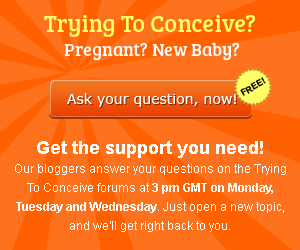You’ve done everything “right” — since you and your partner have been trying for a baby, you’ve taken folic acid, eaten a healthy diet, and exercised regularly. Neither of you smokes or drinks, and you either have lots of intercourse or know when you ovulate so you know you’re intimate during the fertile window.
Still, you’ve been waiting for that elusive positive pregnancy test for what seems like ages. A few times, your period was late and you thought that you finally hit the fertility jackpot. A few other times, you were very tired and your partner started talking you into believing you were pregnant. The months are whizzing by, and you certainly do your bit to make pregnancy happen.
So, why don’t you have a baby on the way yet, Could you have a fertility problem,Your age and your fertility
It’s true that the vast majority of couples who are actively trying to conceive get pregnant within a year, but statistics aren’t everything. You have a certain chance of conceiving during any one menstrual cycle, and that chance depends on your age among other things. Once you are in your thirties, your egg quality already starts to decline slowly. Your forties are another story entirely — you may not even ovulate every month any more.
Age is the single most common cause of infertility, and one that happens to every woman (and most men, too) eventually. Having said that, it’s important to note that trying to conceive may take longer for older couples than those in their early twenties. You actually have more reason to suspect infertility if you are not pregnant after six months in your twenties than you do in your thirties and forties.
This is meant to be encouraging for older couples, but doesn’t take away from the fact that it’s perfectly legitimate to seek medical assistance if you are not pregnant after 12 months of trying — no matter what your age. It is up to you and your partner when to seek out fertility testing, but if you are in your late thirties or early forties, time is indeed of the essence.
Do you have any risk factors for infertility
It is always good to see your doctor before you start trying to get pregnant, for a general preconception checkup. This checkup might weed out medical problems that could interfere with your chances of getting pregnant as well as your potential baby’s health. Sexually transmittable diseases that do not have symptoms (chlamydia, particularly) could go undiagnosed for many years without you having any idea you have them. If you do have an STD, you want to know about it. Couples who are trying to conceive and haven’t gone through STD testing yet can still seize the opportunity and do so now.
You may also be aware of existing medical conditions. Irregular menstrual cycles can point to issues that could prevent you from getting pregnant, such as a hormonal imbalance (see . Any abdominal surgery, including appendicitis, can also lead to fertility problems — if you have had any surgery, look into it further.
Then, there are the more obvious culprits. Women who have Polycystic Ovary Syndrome (PCOS), endometriosis, fibroids, an past chlamydia or Pelvic Inflammatory Disease diagnosis, cysts… all of these things are risk factors for infertility. They indicate that you have every right to seek medical attention now, even if you haven’t been trying to conceive for a full 12 months yet.
Not getting pregnant can be due to many different factors. They include poor lifestyle choices or nutrition (you’ve already looked into that), simply having sex at the wrong time of the month (you have probably looked into that one too), and female fertility problems. Could you have a fertility problem, Yes, you could. But never neglect the possibility that your partner could be facing a fertility problem too.
In practical terms, this means you should both go to the doctor when you make that initial fertility appointment. Risk factors for male infertility include erectile dysfunction, trouble ejaculating, and overheating the testicles through constant hot baths or laptops in his lap. Vigorous biking can do the same thing. Testicular surgery is another possible cause, as are many chronic diseases including diabetes.

